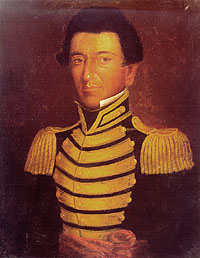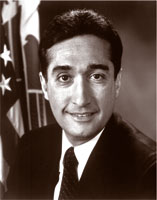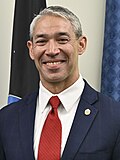| Mayor of the City of San Antonio | |
|---|---|
 Coat of Arms of San Antonio | |
 Flag of San Antonio | |
| Residence | Private residence |
| Term length | 4 years 2 term limit |
| Formation | 1731 |
| Website | www |
The following is a list of mayors of San Antonio, Texas.
Contents
- Colonial (1731–1821) and Mexican (1821–1836) San Antonio
- San Antonio in the Republic of Texas (1836–1844) and U.S. State of Texas (1844–present)
- See also
- References
- External links
San Antonio operates under a council–manager form of government. [1] [2] While the mayor presides over meetings of the City Council and is paid $3,000 more than other members of the Council, the mayor does not wield executive authority or veto power. Rather, the mayor has one vote (of 11) on the city council, and the city manager, appointed by the City Council, has executive power (the city charter gives the manager the responsibility to "execute the laws and administer the government of the city"). [1] However, the mayor does have additional ceremonial responsibilities, such as issuing proclamations. Additionally, the mayor is the only city-wide elected official, and "a high-profile mayor can wield considerable political influence" in the city. [2] For example, the San Antonio Express-News editorial board wrote that Mayor Julian Castro has "a mastery of political skill that made him a strong force in a weak mayor structure" during his term (2009–14). [3]
Under Texas law, the mayor, like the city council, is selected in a non-partisan election. [2] When a vacancy occurs, the city council appoints an interim mayor. [4] The mayor, like the other members of the city council, served a two-year term, with a four-term limit. However, due to the passage of Proposition F in 2024, the winner will receive a four-year term, as term limits were changed from four two-year terms to two four-year terms. From 1975 to 2025, every mayor of San Antonio had previously served on the city council. [2]

























